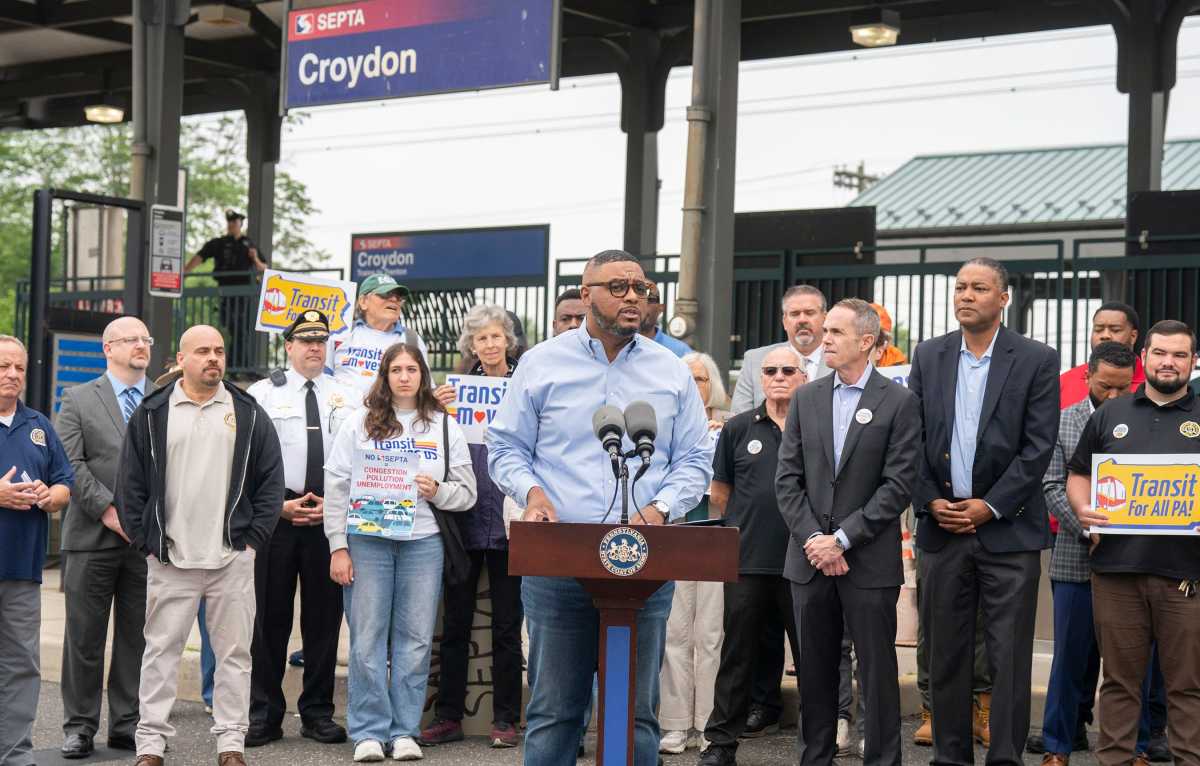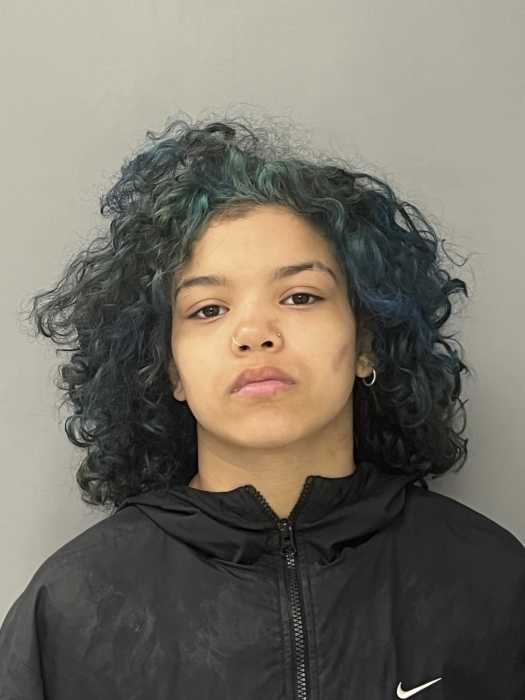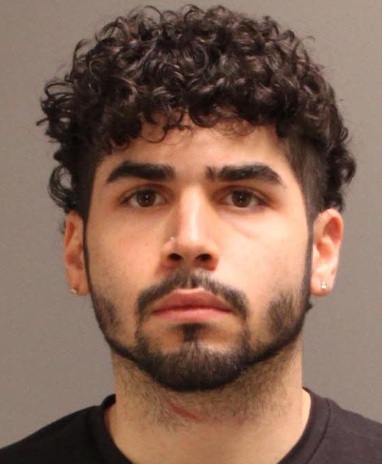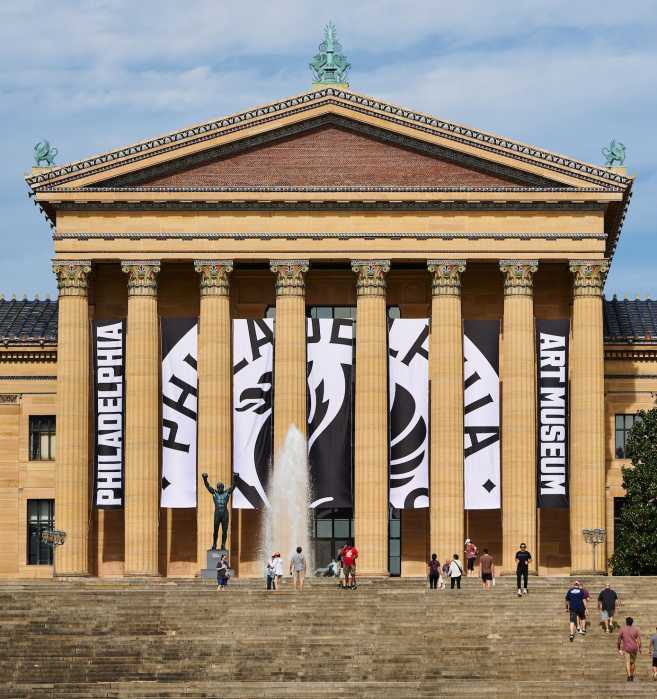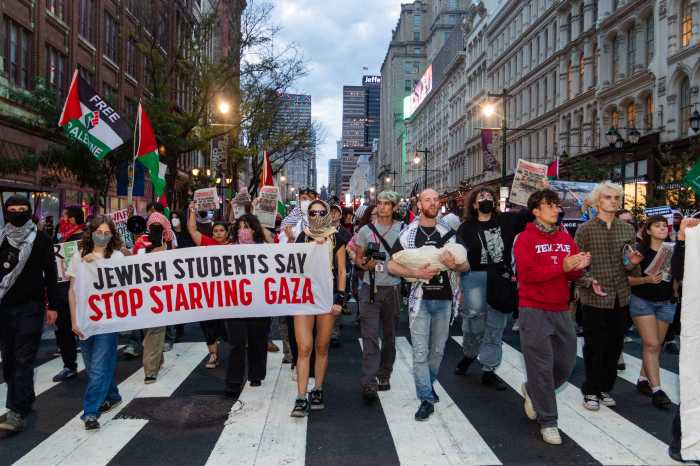At the same time his father was driving a public bus throughout the Pittsburgh region Tuesday morning, Pennsylvania Lt. Gov. Austin Davis was outside of the Croydon SEPTA station in Bucks County to call for a critical investment in the state’s mass transit systems as the legislative deadline looms.
“I want to be clear: public transit isn’t optional. It’s essential,” Davis said as trains carrying commuters whizzed by behind him.
About 1 million Pennsylvania residents rely on the state’s public transit system per day, he said.
The calls for funding come after SEPTA recently announced its proposed fiscal year 2026 operating budget. It would, if passed, include an average fare increase of 21.5% and a 45% reduction in service — including the elimination of the Trenton Regional Rail line and two key bus routes in Lower Bucks County.
The large-scale cutbacks outlined in the proposed budget involve the elimination of five regional rail lines and 50 bus routes, workforce reductions, a 9 p.m. curfew for metro and regional rail services, 66 station closures, the elimination of service for special events and a 20% reduction of service to all remaining routes.
“The SEPTA system as we know it would cease to exist,” said SEPTA Board Chair Ken Lawrence.
Facing a $213-million budget deficit, SEPTA said its funding crisis is not unlike what other transit agencies are dealing with across Pennsylvania. It cited the end of federal COVID relief funding, plus the increased cost of fuel, power and supplies.
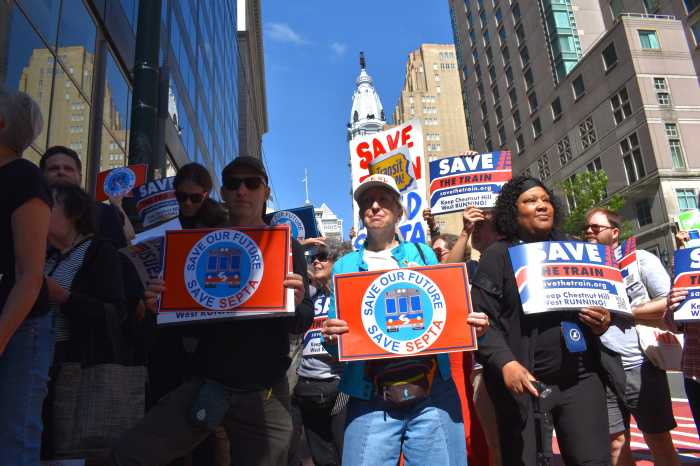
Outside of the Croydon station, which is on the chopping block in SEPTA’s proposed budget, Davis was joined by state Sen. Steve Santarsiero, and other transportation leaders calling for the investment from Harrisburg. As of Tuesday morning, there are only 10 working days left in the month for Pennsylvania’s legislators, only four of which are session days for state senators, to pass next year’s budget by June 30. The Pennsylvania Senate is currently comprised of 23 Democrats and 27 Republicans.
The speakers made a point to emphasize that public transit is not just important to the large urban cities but instead provides critical services to the entire state as a whole. “There is public transit in all of Pennsylvania 67 counties,” Davis said.
He emphasized that the investment in transit results in economic development for the region. Every $1 invested in mass transit generates $5 in economic activity, Davis said.
Operating and maintaining the state’s mass transit systems also requires the work of countless businesses across Pennsylvania who are contracted to support some aspect of the transit system, whether it be maintenance, engineering, custodial and more.
Between 2019 and 2023, companies in 39 counties across the state had contracts with SEPTA that were worth more than $1 billion, according to Bucks County Transportation Management Association Executive Director Stephen Noll.
“It’s not a bailout,” Noll said. “It’s an investment in the economic growth of Pennsylvania and it pays huge dividends.”
For those who may not take the train or bus and don’t see how this funding could impact them, the lawmakers emphasized that fewer riders on public transit will likely correlate to more cars on the road and in turn, even more traffic.
The need for transit funding, officials said, comes at a critical time for the state with huge public events scheduled in the coming year that are expected to draw countless visitors to the area.
“Many of these events decided to come to Pennsylvania because of our mass transit system,” Davis said, pointing to next summer’s World Cup and the 2026 MLB All Star game.
“If we’re not successful in getting funding for mass transit we’re going to take events that are going to highlight Pennsylvania, that are going to be massive economic generators and quite frankly, turn them into a disaster because people aren’t going to be able to traverse the city and the region,” he said.
“So I think its critical to make sure that those events are successful that we secure this funding,” Davis added.
In response to SEPTA’s proposed service cuts, officials reiterated the need to pass the 2025-2026 state budget plan introduced in February.
“This is a top priority for our administration and … inaction is not acceptable,” Davis said.
Gov. Josh Shapiro’s spending plan proposes increasing the state’s mass transit funds by $292.5 million by upping the percent of Sales and Use Tax receipts that go to the Public Transportation Trust Fund from 7.68% to 9.43%.
“For two years in a row, I have proposed a commonsense plan to support mass transit all across the Commonwealth and last December, I flexed funding to give the legislature more time to come to the table,” Shapiro said in a statement April 10.
“The state House has passed my proposal three times and plans to do so again next month — it is now squarely on the state Senate to come to the table and pass more funding for mass transit that their own constituents rely on.”
This article was originally published by the Bucks County Courier Times / USA TODAY Network via Reuters Connect



